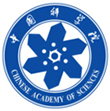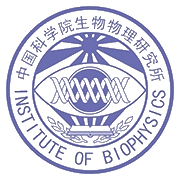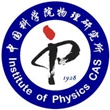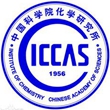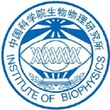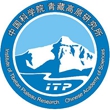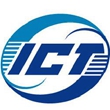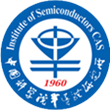Sessions 3:Life Sciences
Xiao-Fan Wang
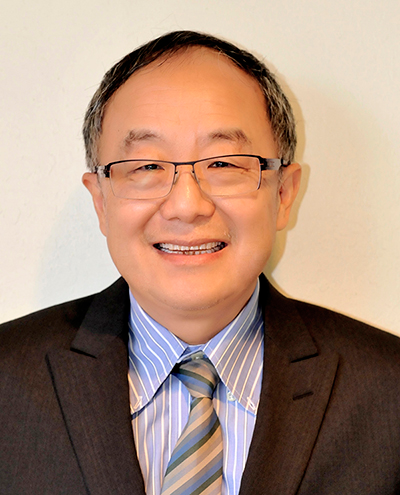
Character introduction
Dr. Wang received his graduate training with Dr. Kathryn Calame at University of California, Los Angeles. He received his Ph.D. in 1986 and then spent five years at Whitehead Institute for Biomedical Research and Massachusetts Institute of Technology as a postdoctoral fellow under the guidance of Dr. Robert Weinberg. The main achievement during this period was the molecular cloning of transforming growth factor β (TGF-β) type II and type III receptors. In 1992 he became an Assistant Professor at Duke University Medical Center. He is currently the Donald and Elizabeth Cooke Professor of Experimental Oncology and Professor of Pharmacology and Cancer Biology at Duke University School of Medicine, and the Director of University Program in Molecular Cancer Biology.
As a world-renowned cancer biologist, Dr. Wang focuses his research primarily on elucidating the molecular mechanisms associated with tumor initiation and tumor microenvironment. He has contributed to several important aspects of cancer research including cancer cell signaling pathways, DNA damage responses, functions of miRNAs in tumor development and metastasis, and cellular senescence program in normal and neoplastic tissues. In particular, Dr. Wang has made significant contributions in demonstrating the molecular details of the TGF-β signaling cascade and its functions in many fundamental aspects of cellular behaviors. He has published more than 100 scientific papers, many of them published in prestigious journals including Science, Nature, Cell, Cancer Cell, Nature Cell Biology.
Dr. Wang is a foreign member of Chinese Academy of Sciences (CAS). He was elected a Fellow of the AAAS in 2009, received the Ray Wu Award in 2013, and International Scientific Cooperation Award from CAS. He has served on many NIH review and advisory panels, as well as the scientific advisory committees of many private foundations and academic institutions including Cancer Prevention and Research Institute of Texas and Starr Foundation for Cancer Research. He has also served as the Chairman of International Advisory Committee of several Chinese academic institutions including Tsinghua-Peking University Joint Center for Life Sciences, and led review panels for many institutions of CAS and universities. Dr. Wang is an Associated Editor of Journal of Biological Chemistry and serves on the editorial boards of several other scientific journals. He served as the President of the Society of Chinese Bioscientists in America.
As a world-renowned cancer biologist, Dr. Wang focuses his research primarily on elucidating the molecular mechanisms associated with tumor initiation and tumor microenvironment. He has contributed to several important aspects of cancer research including cancer cell signaling pathways, DNA damage responses, functions of miRNAs in tumor development and metastasis, and cellular senescence program in normal and neoplastic tissues. In particular, Dr. Wang has made significant contributions in demonstrating the molecular details of the TGF-β signaling cascade and its functions in many fundamental aspects of cellular behaviors. He has published more than 100 scientific papers, many of them published in prestigious journals including Science, Nature, Cell, Cancer Cell, Nature Cell Biology.
Dr. Wang is a foreign member of Chinese Academy of Sciences (CAS). He was elected a Fellow of the AAAS in 2009, received the Ray Wu Award in 2013, and International Scientific Cooperation Award from CAS. He has served on many NIH review and advisory panels, as well as the scientific advisory committees of many private foundations and academic institutions including Cancer Prevention and Research Institute of Texas and Starr Foundation for Cancer Research. He has also served as the Chairman of International Advisory Committee of several Chinese academic institutions including Tsinghua-Peking University Joint Center for Life Sciences, and led review panels for many institutions of CAS and universities. Dr. Wang is an Associated Editor of Journal of Biological Chemistry and serves on the editorial boards of several other scientific journals. He served as the President of the Society of Chinese Bioscientists in America.
Topic: Successes and Challenges of Cancer Immune Therapy
Abstract Successful application of immune-checkpoint inhibitors in the clinic for cancer treatment highlights potentials of the immune system to effectively control tumor growth and metastasis. Together with unprecedented responses of CAR-T therapies in hematological cancers, adoptive immune cell therapy has attracted enormous interests. However, their success in treating solid tumors has been limited. This presentation summarizes the landscape of adoptive immune cell therapies, unique challenges posed for treating solid tumors, and new insights to address the obstacles. We will also discuss current environment of immunotherapy clinical trials in China, making suggestions to embrace the new era of cancer therapy.
Previous Ian T. Baldwin
Next Bernhard Schmid
